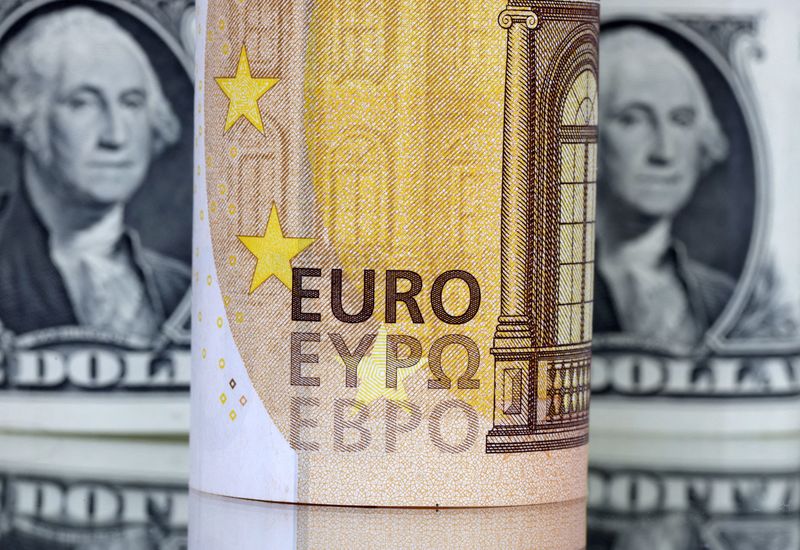By Amanda Cooper
LONDON (Reuters) - The dollar hovered near nine-month lows against the euro and surrendered recent gains against the yen on Tuesday, as traders weighed up the diverging economic outlooks for the United States and Europe.
Euro zone data on Tuesday reinforced the view that the economy is surviving a winter of intense price pressures reasonably well, analysts said.
The dollar index, which measures the U.S. currency's performance against a basket of six major currencies, edged up 0.1% to 102.07, narrowly avoiding last week's 7-1/2-month lows.
"The U.S. is no longer the cleanest shirt in the global economic laundry," said Ray Attrill, head of foreign-exchange strategy at National Australia Bank, who expects the dollar index to fall to 100 by end-March and the euro to rise to $1.10.
"That's integral to our bearish U.S. dollar view, that the U.S. is not going to be the global growth leader."
Money market traders see only two more quarter-point rate hikes by the Fed to a peak of around 5% by June, before it starts cutting rates later in the year. The Fed itself has insisted it still has 75 bps of increases in the pipeline.
By contrast, the euro has gained nearly 0.8% in the last week, lifted by a barrage of European Central Bank officials signalling that tackling inflation is going to require more rate rises than markets currently anticipate.
Surveys on Tuesday showed euro zone business activity made a surprise return to modest growth in January, and service-sector activity in Germany expanded for the first time since June, although price pressures remained sticky.
"There is probably enough in there to cement another 50 basis points in increases from the ECB," TraderX market strategist Michael Brown said.
The euro, which traded around its highest since last April on Monday, was flat against the dollar at $1.0868, down from a session high of $1.0898.
Meanwhile, ECB President Christine Lagarde on Monday reiterated that the central bank will keep raising interest rates quickly to tame inflation, which is still more than 5 times its target rate of 2%.
Elsewhere, the dollar fell 0.4% to 130.19 yen, breaking a two-day rally.
Last week, the dollar fell to as little as 127.215 yen, its weakest since May, ahead of a Bank of Japan policy review at which investors bet the central bank might signal the end of its its stimulus programme. The BOJ, however, left policy unchanged, giving the dollar some respite.
But analysts believe a shift by the BOJ will happen sooner, rather than later, as policymakers make tweaks to their yield curve control (YCC) mechanism, which pins short-term rates at -0.1% and keeps 10-year yields in a band around zero.
"Clearly, the market regards the YCC policy as well past its use-by date, and it's only a matter of time - and probably months rather than quarters - until the BOJ sounds the death knell on it," said NAB's Attrill, who predicts dollar-yen will decline to 125 by end-March.
"The era of yen weakness is rapidly falling behind us."

Sterling was the worst-performing major currency against the dollar, falling 0.52% on the day to $1.2312, after a survey showed British private-sector economic activity fell at its fastest rate in two years in January.
"Looking forward, we expect sterling to start underperforming neighbouring European currencies as economic data highlights widening growth differentials," Simon Harvey, who is head of FX Analysis at Monex Europe, said.